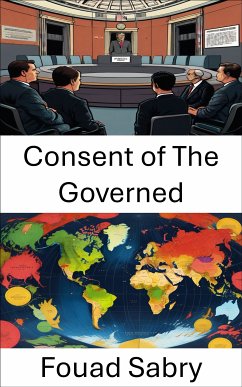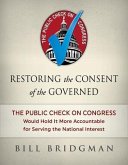1-Consent of the Governed-The foundation of government legitimacy through people's consent.
2-John Locke-Locke's theories on government and natural rights that shaped democratic thought.
3-Political Philosophy-Insights into political philosophy and its impact on democratic principles.
4-Sovereignty-The concept of sovereignty and its relation to consent in governance.
5-Social Contract-How social contract theory defines the relationship between the governed and rulers.
6-U.S. Constitution-The Constitution as a reflection of consent and democratic governance.
7-Declaration of Independence-The Declaration's role in articulating consent and self-governance principles.
8-Authority-The nature of political authority and its legitimacy through consent.
9-Natural vs. Legal Rights-Differentiating natural and legal rights within democratic theory.
10-Popular Sovereignty-The concept of popular sovereignty and its modern democratic application.
11-Divine Right vs. Democratic Consent-Evolving notions of political legitimacy.
12-Virginia Declaration of Rights-Its influence on American political thought and consent principles.
13-State of Nature-Implications of the state of nature for consensual governments.
14-Political Legitimacy-Dependence on the consent of the governed.
15-Two Treatises of Government-Locke's impact on political philosophy and democratic theory.
16-Limited Government-Alignment of limited government with the concept of consent.
17-Compact Theory-Emphasis on voluntary agreements among the governed.
18-Right of Revolution-Its implications for political change in response to breaches of consent.
19-Voluntary Taxation-Role of voluntary taxation in democratic governance.
20-Popular Sovereignty in the U.S.-Manifestation in U.S. political practices and institutions.
21-Philosophy of Human Rights-Connection between human rights philosophy and the principle of consent.
This book offers valuable insights into democratic principles and political philosophy, making it a vital addition to any political science library.
Dieser Download kann aus rechtlichen Gründen nur mit Rechnungsadresse in A, B, BG, CY, CZ, D, DK, EW, E, FIN, F, GR, H, IRL, I, LT, L, LR, M, NL, PL, P, R, S, SLO, SK ausgeliefert werden.









